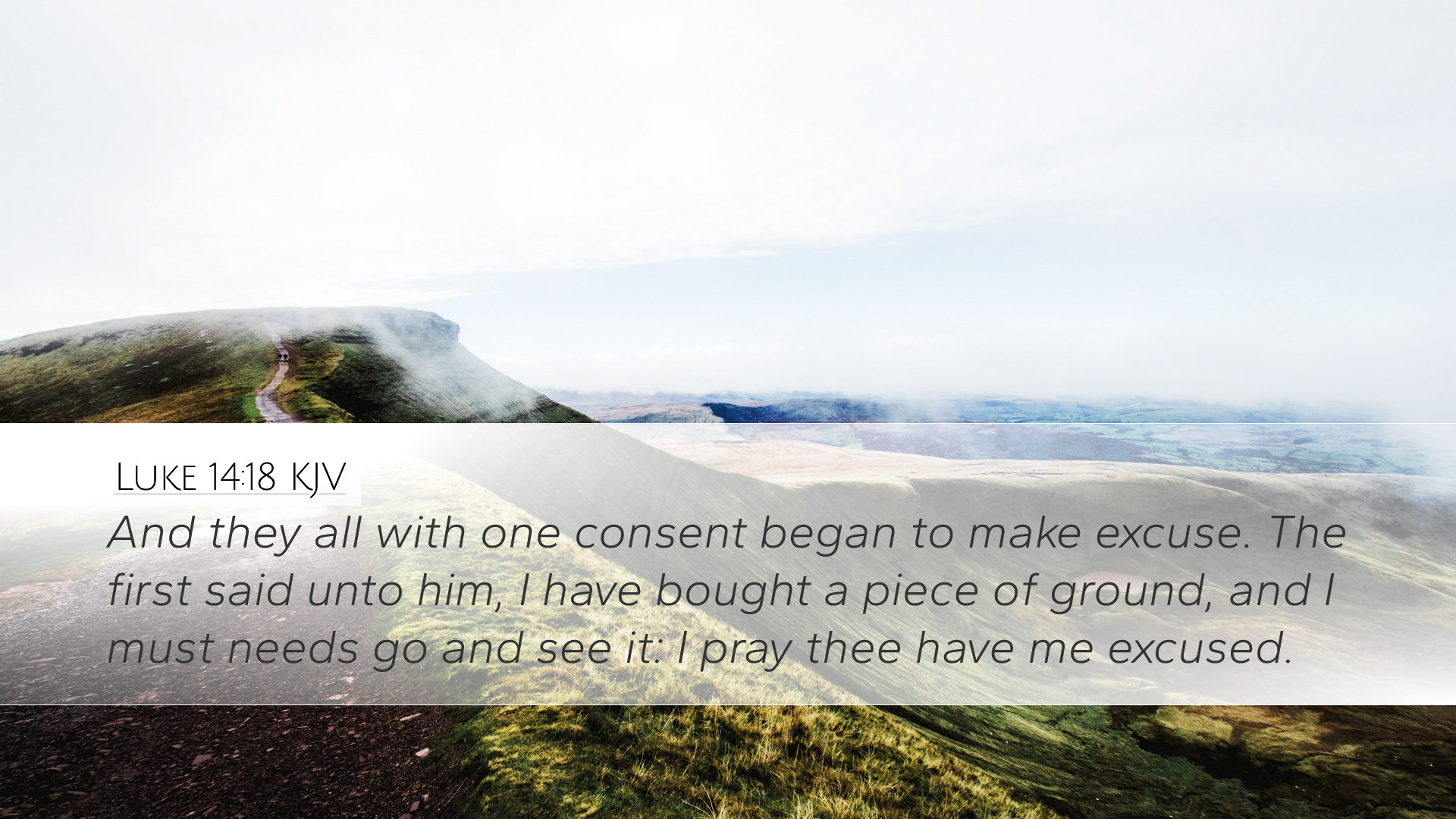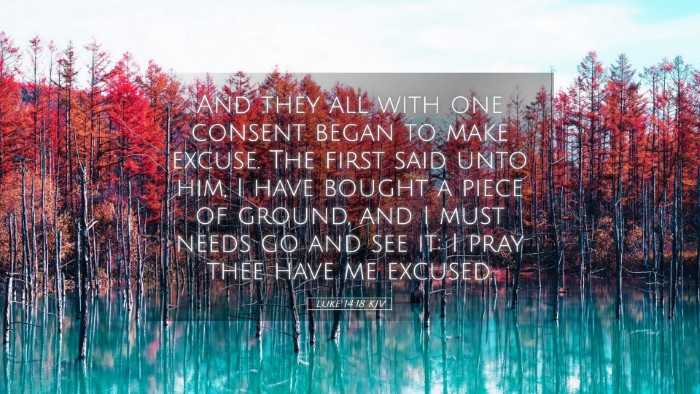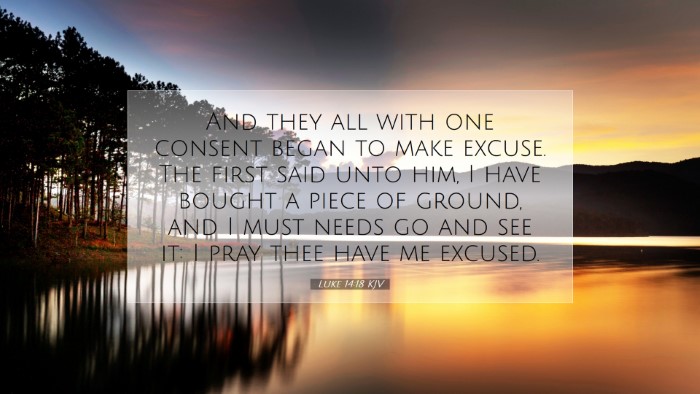Commentary on Luke 14:18
In Luke 14:18, we find a parable that speaks to the divine invitation extended to all people to partake in the blessings of the Kingdom of God. The verse reads:
"But they all with one consent began to make excuse." This response reveals the human inclination to prioritize worldly concerns over spiritual obligations.
Contextual Background
To fully grasp the profundity of this verse, one must consider its narrative context within Jesus' teaching during a meal at the house of a Pharisee.
The preceding verses reveal a series of invitations that denote God’s call to feasting at His table. Jesus delineates a feast for the poor, the crippled, the lame, and the blind, emphasizing that the call transcends social and economic barriers.
The Call and Response
The invitation to the great feast symbolizes the offer of salvation and eternal life.
Matthew Henry elucidates that the invitation includes all people and demonstrates God’s desire that none should perish. However, the responses of those invited—who all, with one accord, present excuses—highlight the tragic reality of human apathy towards divine grace.
Albert Barnes posits that these excuses illustrate how people often allow mundane matters—such as business, property, and personal relationships—to overshadow the higher calling of God.
Each excuse signifies a distraction from accepting the divine invitation.
This serves as a caution against allowing earthly pursuits to obstruct one's relationship with God.
Excuses Analyzed
-
First Excuse: "I have bought a piece of ground, and I must needs go and see it."
This represents those whose preoccupation with material possessions deters them from attending to spiritual matters. Clarke draws attention to the absurdity of delaying spiritual obligations for possessions that can wait.
-
Second Excuse: "I have bought five yoke of oxen, and I go to prove them."
The pursuit of labor and productivity can also draw one's focus away from God’s invitation. Clarke mentions that many toil ceaselessly, neglecting the rest and renewal found in God’s presence.
-
Third Excuse: "I have married a wife, and therefore I cannot come."
This final excuse reflects on familial obligations. Henry observes that while family is significant, it must not surpass our accountability to God.
The Nature of Excuses
The collective nature of the excuses—given "with one consent"—indicates a communal attitude towards divine invitations.
Adam Clarke emphasizes that the culture of distraction is not limited to individuals, but rather is a societal issue. Excuses are often normalized in such a manner that they become a barrier to faith.
Theological Implications
This verse reverberates with theological significance regarding human free will and divine sovereignty.
The clear invitation signifies God’s universal call, while the rejection of that call presents a stark warning regarding the consequences of neglecting such graces.
Henry notes that these invited guests represent Israel, who, despite being chosen, rejected the Messiah. In a broader sense, the passage warns all humanity of the peril of excusing ourselves from what—at the time—seems less urgent but is profoundly consequential in eternal terms.
Conclusion: The Call to Action
As students, theologians, and pastors reflect on Luke 14:18, the invitation to partake in the life-giving feast of God calls for self-examination.
Are we among those who prioritize earthly concerns over the spiritual banquet God has prepared?
This verse serves as both challenge and encouragement to keep our eyes fixed on eternal realities, to respond to God’s invitation with readiness and commitment.
In closing, as Jesus ultimately extends the invitation to those on the margins—the poor, the crippled, the blind, and the lame—let us commit to answering His call, engaging with our communities, and fervently sharing the invitation to God's great banquet through our words and deeds.


